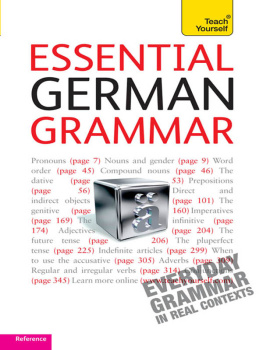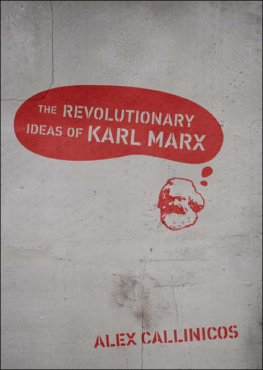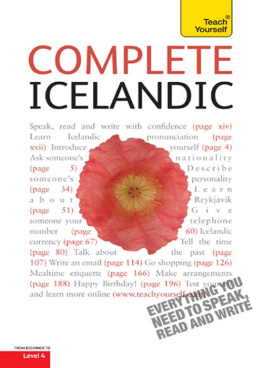Teach
Yourself
Marx The Key Ideas
Gill Hands
For UK order enquiries: please contact Bookpoint Ltd, 130 Milton Park, Abingdon, Oxon, OX14 4SB.
Telephone: +44 (0) 1235 827720. Fax: +44 (0) 1235 400454.
Lines are open 09.0017.00, Monday to Saturday, with a 24-hour message answering service. Details about our titles and how to order are available at www.teachyourself.co.uk
Long renowned as the authoritative source for self-guided learning with more than 50 million copies sold worldwide the Teach Yourself series includes over 500 titles in the fields of languages, crafts, hobbies, business, computing and education.
British Library Cataloguing in Publication Data: a catalogue record for this title is available from the British Library.
Library of Congress Catalog Card Number: on file.
First published in UK 2007 by Hodder Education, 338 Euston Road, London, NW1 3BH.
First published in US 2007 by The McGraw-Hill Companies, Inc.
This edition published 2010.
Previously published as Teach Yourself Marx
The Teach Yourself name is a registered trade mark of Hodder Headline.
Copyright 2007, 2010 Gill Hands
In UK: All rights reserved. Apart from any permitted use under UK copyright law, no part of this publication may be reproduced or transmitted in any form or by any means, electronic or mechanical, including photocopy, recording, or any information, storage and retrieval system, without permission in writing from the publisher or under licence from the Copyright Licensing Agency Limited. Further details of such licences (for reprographic reproduction) may be obtained from the Copyright Licensing Agency Limited, of Saffron House, 610 Kirby Street, London, EC1N 8TS.
Typeset by MPS Limited, A Macmillan Company.
Printed in Great Britain for Hodder Education, a division of Hodder Headline, an Hachette Livre UK Company, 338 Euston Road, London, NW1 3BH, by Cox & Wyman Ltd, Reading, Berkshire.
The publisher has used its best endeavours to ensure that the URLs for external websites referred to in this book are correct and active at the time of going to press. However, the publisher and the author have no responsibility for the websites and can make no guarantee that a site will remain live or that the content will remain relevant, decent or appropriate.
Hodder Headlines policy is to use papers that are natural, renewable and recyclable products and made from wood grown in sustainable forests. The logging and manufacturing processes are expected to conform to the environmental regulations of the country of origin.
Impression number 10 9 8 7 6 5 4 3 2 1
Year 2010 2009 2008 2007
Contents
To my family and friends.
Also, many thanks to the illustrator for his brilliant cartoons.
Meet the author
Welcome to Marx The Key Ideas!
I was born in Wales but have lived most of my life in Northern England. I have always been interested in all aspects of social history, including legend and folklore. After training as a teacher of English and History, specialising in the Victorian Era, I worked in Adult Training where I began teaching adults with disabilities and many adults who had missed out on formal education for various reasons. I was also instrumental in setting up three womens groups and a small press to give women in rural areas a voice. It was from working with these varied people that I acquired the skill of breaking complex subjects down into easier steps and clarifying difficult concepts. I have worked as a freelance writer for many years, writing Beginners Guides to Marx and Darwin, as well as numerous newspaper and magazine articles, poetry and fiction. Like Marx, I believe that education is one of the first steps in the liberation of the individual.
Gill Hands, 2010
1: Only got a minute?
Karl Marx was born in Germany in 1818 at a time when Europe was going through great social changes as a result of industrialization and revolution. After studying philosophy he moved to Paris where he met Friedrich Engels and together they wrote The Communist Manifesto on behalf of the Communist League. Marx was then exiled from Paris and moved to London where he spent many years writing his masterwork Das Kapital.
Marx saw that the society around him was an unjust one where the workers, (proletariat) were exploited by the capitalist classes, (bourgeoisie). Marx believed that these two opposing groups made society unstable and this would inevitably lead to revolution. He proposed that after the revolution a fairer communist society would be set up, industry and money would be centralized and class distinctions would be abolished.
Marx died in 1883 but his ideas lived on and led to world changes. In 1917, after a revolution, Russia became the first communist state in the world and during the twentieth century many other countries followed. The communist societies that resulted were often a long way from Marxs ideal and eventually communism failed in many countries.
Although Marxs ideas have gone in and out of fashion they are still important today, for he was one of the first people to look at the exploitation and alienation caused by capitalist, consumer-led society. There has been a resurgence of interest in his predictions for the economy due to the global recession that began in 2007.
5: Only got five minutes?
Karl Marx was born in Germany in 1818 during a time at a time when Europe was going through great social changes as a result of industrialization and revolution. He was brought up in a conventional middle class family, and it was assumed that he would follow his fathers profession, that of a small town lawyer. Marx initially studied law at university but contact with radicals led him to study philosophy instead. After university he concentrated on journalism and his articles on the plight of peasants soon put him in disfavour with the authorities. A short spell in Paris meant that he mixed with radicals and revolutionaries; it was here that he joined the Communist League and met with Friedrich Engels, his lifelong friend and co-writer. They wrote The Communist Manifesto in 1847.
Marx married his childhood sweetheart and had a large family. He was exiled from Paris and the family ended up living in London, where Marx was involved with International Workingmans Association. He wrote Das Kapital, an attempt to make a scientific study of politics, economics and capitalism. He lived in poverty for a great deal of his time in London and was financially supported by Engels. Das Kapital was not received well in Marxs lifetime and he died in some obscurity in 1883, but after his death the chain of ideas he had begun was to cause revolution and change society.
Philosophy
Marx was both a philosopher and an economist but he believed philosophy was not enough to change the world. His main contribution to the development of philosophy was historical materialism, a way of studying the relationship between the world of ideas and the material world. His study of philosophy and history led him to believe that society developed through a series of contradictions or dialects.
Economy and Society
Marx saw that society had developed into a capitalist one, focused on the production of commodities and that human labour power had itself become a commodity. This was exploited by the capitalists to gain profit. The capitalists (Bourgeoisie) were those who were rich enough to own factories and machinery and the workers (Proletariat) had to sell their labour power in order to live.
Next page










